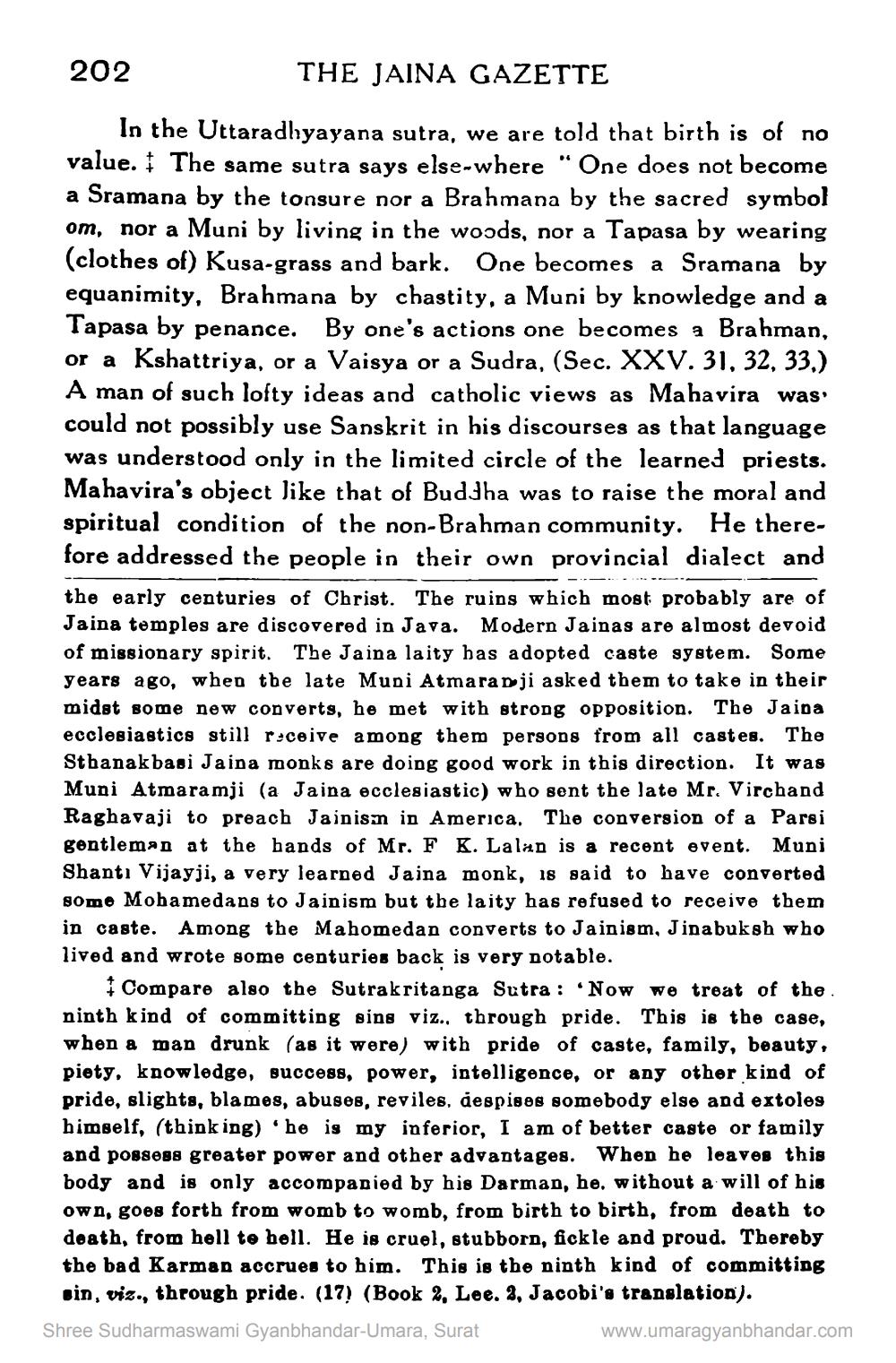________________
202
THE JAINA GAZETTE
In the Uttaradhyayana sutra, we are told that birth is of no value. I The same sutra says else-where "One does not become a Sramana by the tonsure nor a Brahmana by the sacred symbol om, nor a Muni by living in the woods, nor a Tapasa by wearing (clothes of) Kusa-grass and bark. One becomes a Sramana by equanimity, Brahmana by chastity, a Muni by knowledge and a Tapasa by penance. By one's actions one becomes a Brahman, or a Kshattriya, or a Vaisya or a Sudra, (Sec. XXV. 31, 32, 33.) A man of such lofty ideas and catholic views as Mahavira was could not possibly use Sanskrit in his discourses as that language was understood only in the limited circle of the learned priests. Mahavira's object like that of BudJha was to raise the moral and spiritual condition of the non-Brahman community. He therefore addressed the people in their own provincial dialect and the early centuries of Christ. The ruins which most probably are of Jaina temples are discovered in Java. Modern Jainas are almost devoid of missionary spirit. The Jaina laity has adopted caste system. Some years ago, when the late Muni Atmarad ji asked them to take in their midst some new converts, he met with strong opposition. The Jaida ecclesiastics still ruceive among them persons from all castes. The Sthanakbasi Jaina monks are doing good work in this direction. It was Muni Atmaramji (a Jaina ecclesiastic) who sent the late Mr. Virchand Raghavaji to preach Jainism in America. The conversion of a Parsi gentleman at the hands of Mr. F K. Lalan is a recent event. Muni Shantı Vijayji, a very learned Jaina monk, is said to have converted 80me Mohamedans to Jainism but tbe laity has refused to receive them in caste. Among the Mahomedan converts to Jainism, Jinabuksh who lived and wrote some centuries back is very notable.
Compare also the Sutrakritanga Sutra: 'Now we treat of the ninth kind of committing sins viz., through pride. This is the case, when a man drunk (as it were) with pride of caste, family, beauty, piety, knowledge, success, power, intelligence, or any other kind of pride, slights, blames, abuses, reviles, despises somebody else and extoles himself, (thinking) he is my inferior, I am of better caste or family and possegs greater power and other advantages. When he leaves this body and is only accompanied by his Darman, he, without a will of his own, goes forth from womb to womb, from birth to birth, from death to death, from hell te bell. He is cruel, stubborn, fickle and proud. Thereby the bad Karman accrues to him. This is the ninth kind of committing sin, viz., through pride. (17) (Book 2, Lee. 2, Jacobi's translation).
Shree Sudharmaswami Gyanbhandar-Umara, Surat
www.umaragyanbhandar.com




